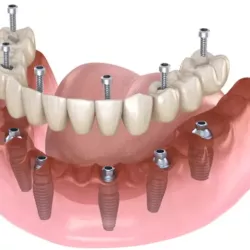Handling Dental Emergencies: A Comprehensive Guide
Knowing how to handle dental emergencies is crucial for maintaining oral health and preventing further complications. Acting promptly and seeking professional assistance can make all the difference in preserving your smile.
Section 1: Preparing for Dental Emergencies
Being proactive and prepared can greatly alleviate the stress of unexpected dental issues. Having a well-equipped dental first aid kit at your disposal, both at home and while you're on the go, can provide you with the tools needed to address minor emergencies.
Essential items for your dental first aid kit:
- Dental floss
- Temporary dental cement
- Dental wax
- Pain relievers (over-the-counter)
- Cotton balls or gauze pads
- Tweezers
- Small mirror with handle
- Disposable gloves
- Contact information for emergency dental services
Section 2: Common Dental Emergencies and Their Initial Steps
Certain dental emergencies can arise suddenly, leaving you in discomfort and uncertainty. Here's what you need to know about handling some common dental issues before seeking professional help from an emergency dentist:
Toothaches:
- Rinse your mouth with warm water.
- Gently floss to ensure there's no debris causing discomfort.
- Use over-the-counter pain relievers as directed.
- Avoid placing aspirin directly on the tooth or gums.
Broken or Chipped Teeth:
- Rinse your mouth with warm water to clean the area.
- Apply cold compresses to minimize swelling.
- Collect any broken pieces and keep them in a clean container.
- Cover sharp edges with dental wax.
Knocked-Out Teeth:
- Handle the tooth by the crown, not the root.
- Gently rinse the tooth with water, but do not scrub.
- Attempt to reinsert the tooth into its socket, if possible.
- If reinsertion is not possible, keep the tooth moist in milk or saliva.
Dislodged Fillings or Crowns:
- Try to keep the restoration in a safe place.
- Use dental cement or sugar-free gum to temporarily secure the area.
- Avoid chewing on the affected side until the restoration is fixed.
Dental Abscesses:
- Rinse your mouth with saltwater solution.
- Use over-the-counter pain relievers to manage discomfort.
- Seek prompt dental care to prevent infection from spreading.
Remember, while these initial steps can provide temporary relief, seeking professional assistance from an emergency dentist is essential for a proper diagnosis and treatment plan.
Section 3: The Role of a Dentist in Dental Emergencies
Dentists are trained professionals equipped to handle a wide range of dental emergency care. Their expertise ensures that you receive the proper care needed to address your situation effectively.
Expertise and Training:
- Dentists undergo rigorous training that includes emergency scenarios to prepare them for various situations.
- They are skilled in diagnosing and treating dental issues quickly and accurately.
Importance of Professional Help:
- While initial steps can provide temporary relief, professional evaluation is crucial.
- Dentists can identify underlying issues that might not be apparent and recommend appropriate treatment.
Benefits of a Dentist's Diagnosis and Treatment:
- Dentists can prevent further complications by addressing the root cause of the emergency.
- Proper treatment reduces the risk of infections, further damage, and long-term oral health issues.
Section 4: What to Expect at the Dentist's Office
When you visit a dentist during a dental emergency, you can expect a thorough assessment and appropriate treatment tailored to your situation.
Typical Procedures and Treatments:
- The dentist will conduct a comprehensive examination to diagnose the problem accurately.
- Treatments might include dental fillings, bonding, root canals, extractions, or other procedures based on the issue.
Communication with the Dentist:
- Communicate the details of your emergency and any discomfort you're experiencing.
- Don't hesitate to ask questions about the recommended treatment and its potential outcomes.
Section 5: Preventive Measures to Avoid Dental Emergencies
Taking proactive steps to maintain oral health can significantly reduce the risk of dental emergencies.
Maintaining Good Oral Hygiene:
- Brush your teeth at least twice a day using fluoride toothpaste.
- Floss daily to remove food particles and plaque between teeth.
Preventing Injuries:
- Wear mouthguards during sports or activities that pose a risk of dental trauma.
- Avoid using your teeth to open packages or bite into hard objects.
Importance of Regular Check-ups:
- Schedule regular dental appointments for professional cleanings and examinations.
- Dentists can identify potential issues early and provide preventive measures.
By following these preventive measures and maintaining good oral hygiene habits, you can minimize the likelihood of encountering dental emergencies.
Section 6: Handling Dental Emergencies for Children
Children can experience dental emergencies too, and it's important to approach these situations with care and a tailored approach. You may want to consider visiting a pediatric dentist for your child.
Specific Considerations for Children:
- Children's teeth are different from adult teeth, and certain emergencies may require different treatments.
- Dental trauma can be particularly distressing for children, so keeping a calm demeanor is crucial.
Tips for Calming Children During Emergencies:
- Speak soothingly and assure them that you're there to help.
- Use distraction techniques like storytelling or playing a calming game.
- Comfort them physically with a hug or holding their hand.
Preparing Parents for Quick Action:
- Educate parents about common childhood dental emergencies, such as falls or knocked-out baby teeth.
- Encourage parents to have a dental first aid kit with child-friendly items.
Section 7: Conclusion
In the face of dental emergencies, knowledge and preparation can make a significant difference. By following the steps outlined in this guide and understanding the role of dentists, you're better equipped to handle unexpected oral issues.
Key Points Recap:
- Preparing a dental first aid kit can provide you with essential tools for initial care.
- Quick action and professional help are both vital components of managing dental emergencies.
- Dentists play a crucial role in diagnosing, treating, and preventing complications.
Staying Informed and Prepared:
- Being informed about common dental emergencies empowers you to take the right steps.
- Remember that seeking professional help is essential for proper diagnosis and treatment.
Final Thoughts:
Emergencies can be unsettling, but with the right knowledge and a proactive approach, you can effectively navigate dental emergencies and safeguard your oral health. Stay vigilant, stay prepared, and don't hesitate to reach out to an emergency dental professional when needed. Your smile deserves the best care, even in unexpected situations.
More to Read:
Previous Posts:


